Unpublished manuscript sermons of an Ejected Puritan minister, 1700
£4,800.00
YEO, Rev. William, EVANS, Richard. [Unpublished manuscript sermons by and ejected dissenting minister and his son-in-law]. [Devon, England?], [c.1716]
Quarto. Manuscript on paper, in two separate hands. [6], 81, [3]; [2], 81, [1]; [2], 16, [2]; [2], 93, [1]; [2], 110, [4]; [2], 25pp, [1]. Contemporary blind-tooled black calf, re-backed and re-cornered to style with original spine laid down; new end papers. Occasional spotting and marking, else fine. Previous owners’ inscriptions to blank fly immediately preceding text, C19th provenance note and inscription to initial blank.
An entirely unpublished collection of transcriptions from manuscript sermons and devotional speech, originally preached by two Devonian ministers in the late 17th and early 18th centuries, in what appears to be two distinct hands, presented much in the manner of a printed work, in six separate sections, with separate divisional title pages, each with a thick black mourning-style border.
The first two sections of the volume as the text explains, are each ‘the substance of several Sermons’ by Rev. William Yeo (1617 – 1699), Totnes-born Puritan minister. His biography, a fair reflection of the tumult experienced by the dissenting ministers preaching during the mid-17th century is outlined by Edmund Calamy in the ‘Account of the Ministers, lecturers, masters and fellows of Colleges and schoolmasters who were ejected or silenced after the Restoration in 1660’, contained within his second edition of Richard Baxter’s history.
Yeo studied first at New Hall Inn, Oxford where he secured his BA in 1638 before transferring to Emmanuel College, Cambridge to study for his Masters. After receiving this Yeo served as chaplain in the Parliamentary Army, probably in the regiment of ‘Colonel Gold’ perhaps the Colonel William Gould who took command of the Plymouth Garrison in January 1644; but by late 1645 Yeo was an incumbent minister in the vicinity of Brighton, East Sussex. Later in the 1640s although likely due to the absence of complete records for this era, the firm date is unknown Yeo took up the rectorship of Wolborough near Newton Abbot where he remained until his dissenting views led to his ejection among some 2500 other Puritan ministers after the Act of Uniformity was passed in 1662. Calamy pointedly notes what these transcriptions – with just a single date of 1693 amongst them – appear to substantiate that Yeo continued ‘firm to his Principles and Preach’d as the times would bear’ it in spite of the threat of large fines and interfering constables, in the area of modern day Newton Abbott. Yeo’s illicit preaching included, by repute, meetings at night near Bradley Woods and his steadfast and pioneering commitment to Devonian Non-conformity, eventually somewhat more accepted by the reforms of the 1670s and 1680s which allowed Yeo to officiate at a Presbyterian congregation, appears to have been cherished by several succeeding generations.
The third section of this manuscript is Yeo’s funeral sermon preached by Rev. Richard Evans (b.1686) Vicar at Cullumpton, who had married the former’s daughter, Francis in 1696. Frustratingly for those expecting further family detail, the first-person transcriptions of Evans’ pious and lengthy 16 page funeral sermon notes that he is against ‘Funeral Encomiums’ as he ‘would rather have their own work yn by words praise them (whose funerals I preach)’.
The 4th 5th and 6th sections contain further sermon discourses by Evans: respectively they concern the ‘Nature and Properties of a Good Conscience’ (from Hebrews 13:18); the ‘Amiablenesse of Christ in his Natures, Offices, Actions and Sufferings’ (from Canticles 5:16) and the ‘Necessity of Getting Grace and Securing a title to Heaven (from Luke 10:42).
The dating and identification of the writers of this manuscript transcription is slightly troublesome and not helped by the appearance of what seems to be two distinct hands on two different paper stocks or the quarter format which has presented us making dated identification of the watermarks.
The first three sections in a uniform hand clearly date given their reference to the late William Yeo to after 1699. Given the presence of the funeral sermon by the subject’s son-in-law Richard Evans, it is tempting to hazard that the first hand is his. Perhaps too, the earliest inscription (dated 1716) and heavily contracted provides a clue to the initial sections’ origins. The second hand, as a note to the final leaf of the 6th the final section of the work confesses, appears to be that of Rev. Richard Evans’ son, William Evans: ‘written by me William Evans’. May God give me grace to read Practiss and Consider it for my souls Good. This is presumably the William Evans who has the later provenance of the volume within the Evans family and is well recorded in manuscript note which precedes the text by a later owner – and another relative and Conformist – Jonathan Glyde (1808 – 1862) sometime Vicar at Cullumpton and later at Bradford.
While some uncertainty remains over the creation of this volume it prevents a valuable opportunity for original research on the content of the sermons of a well-known pioneer of Devonian Non-conformity and those of his son-in-law.
Neither Yeo nor Evans’ work appears to have ever troubled the presses; and apart from Wills in the National Archives and life-event references in various parish registers and at Oxford and Cambridge we could locate no institutional holdings of manuscript materials such as this.

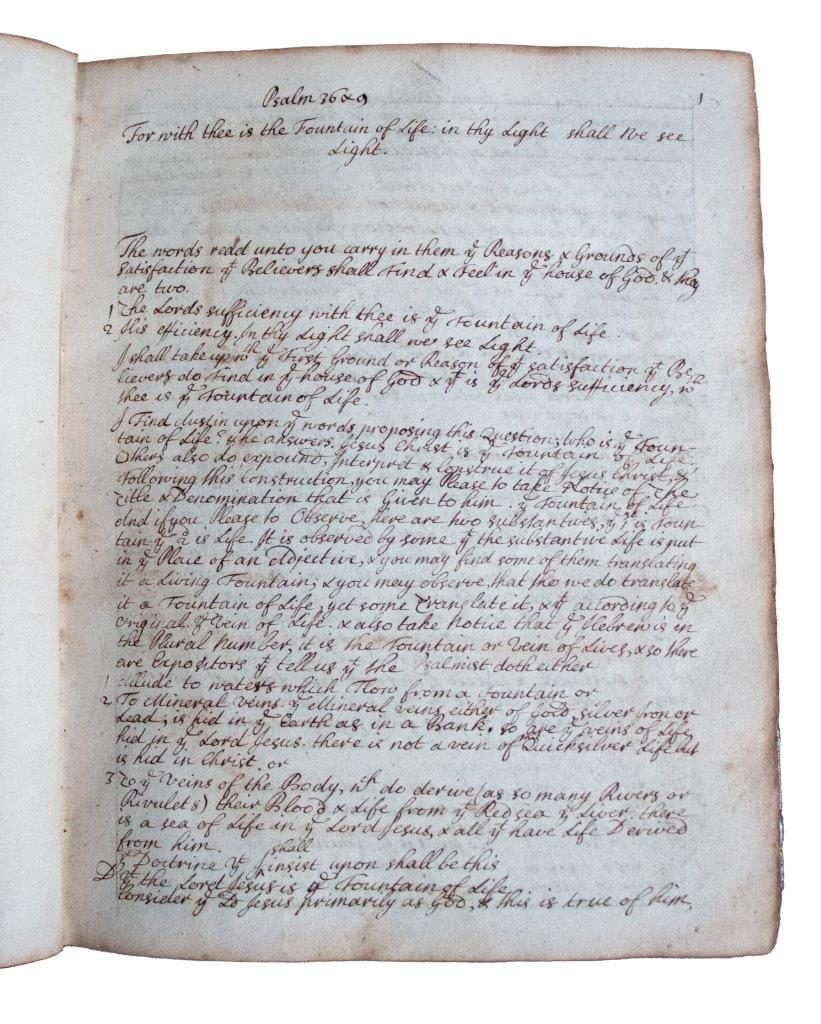

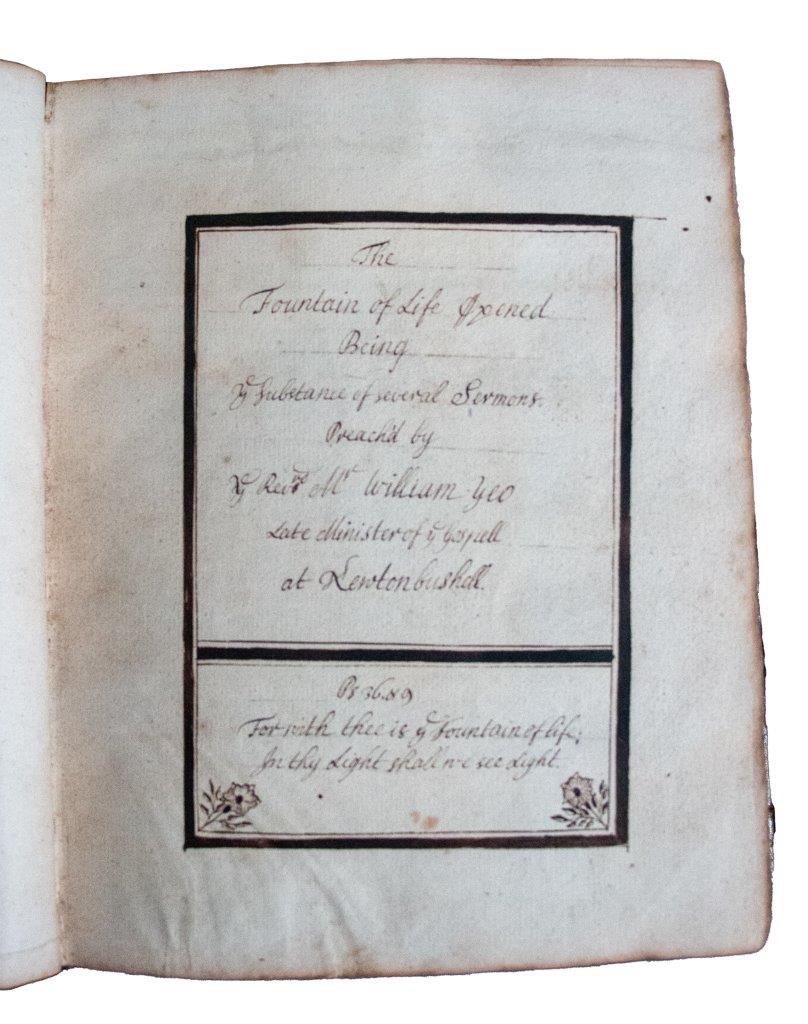
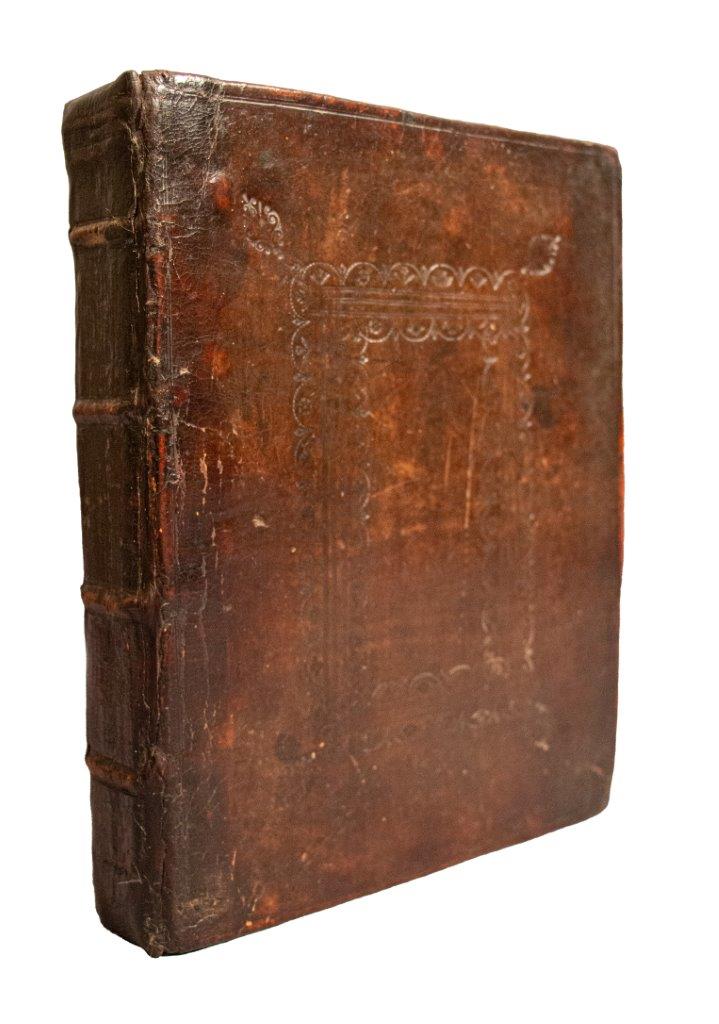
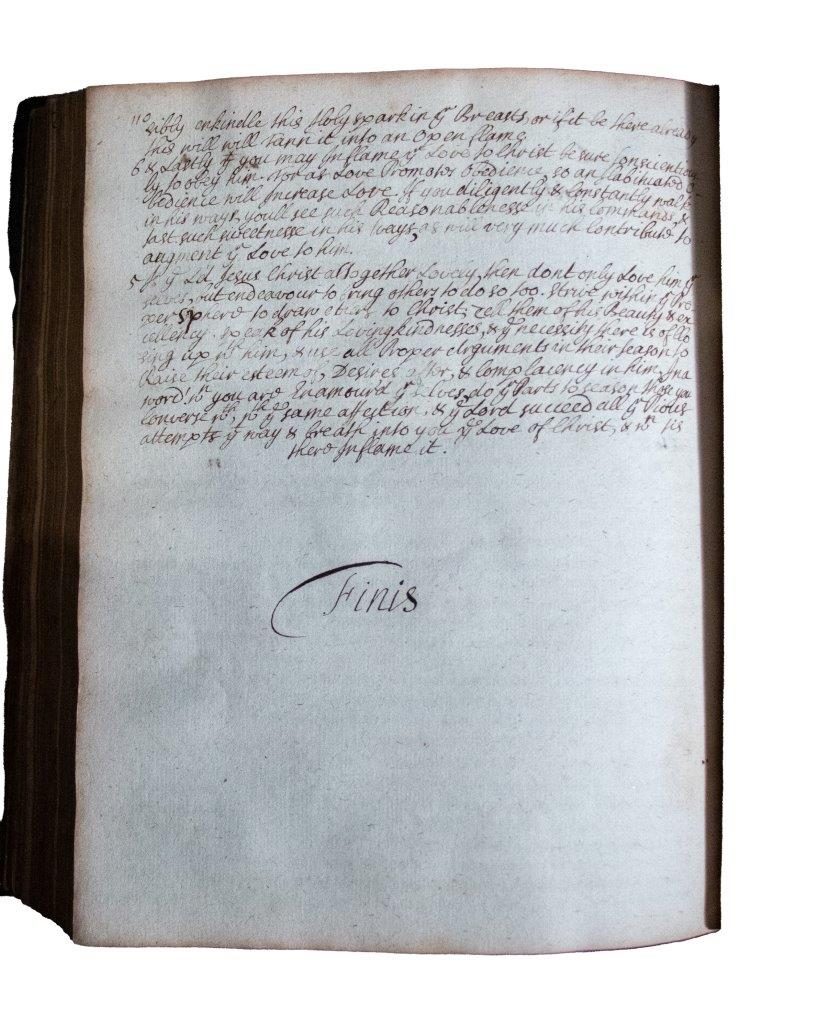
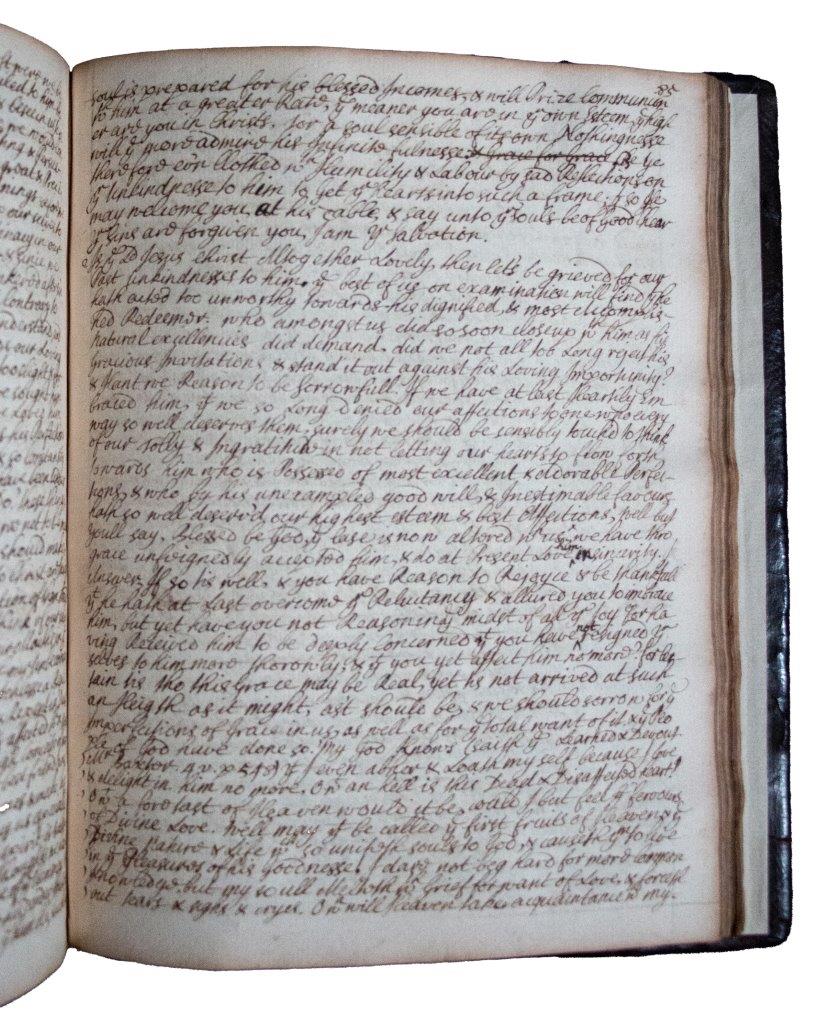
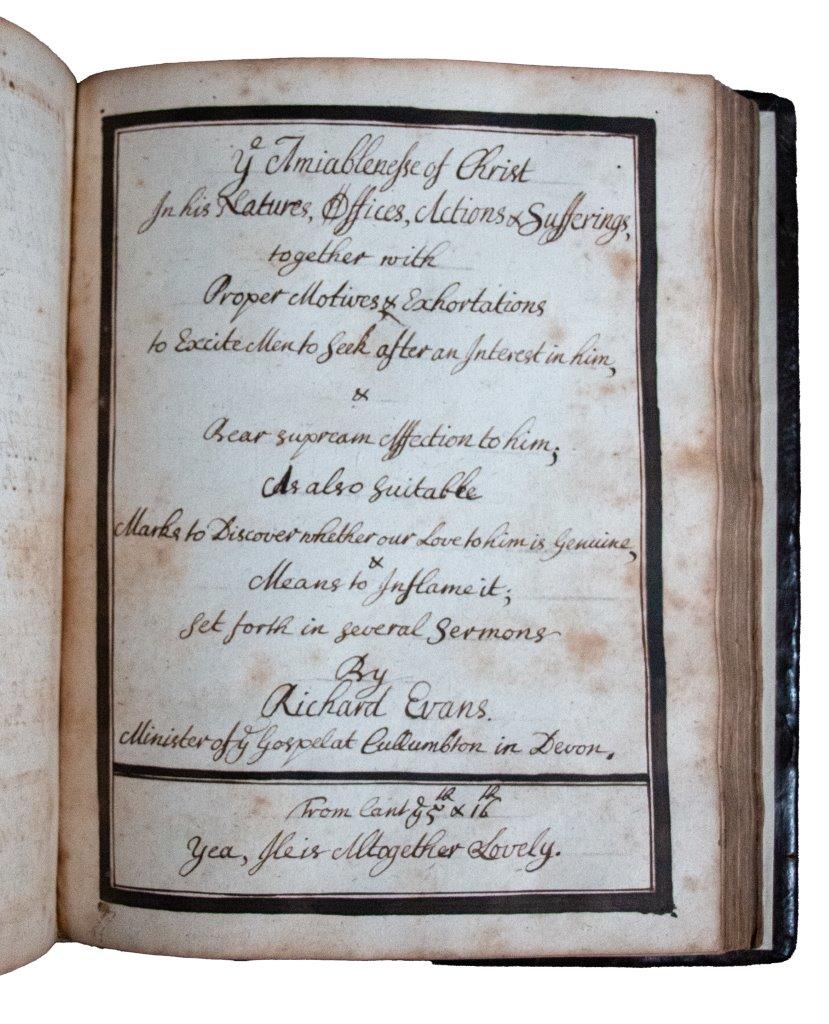
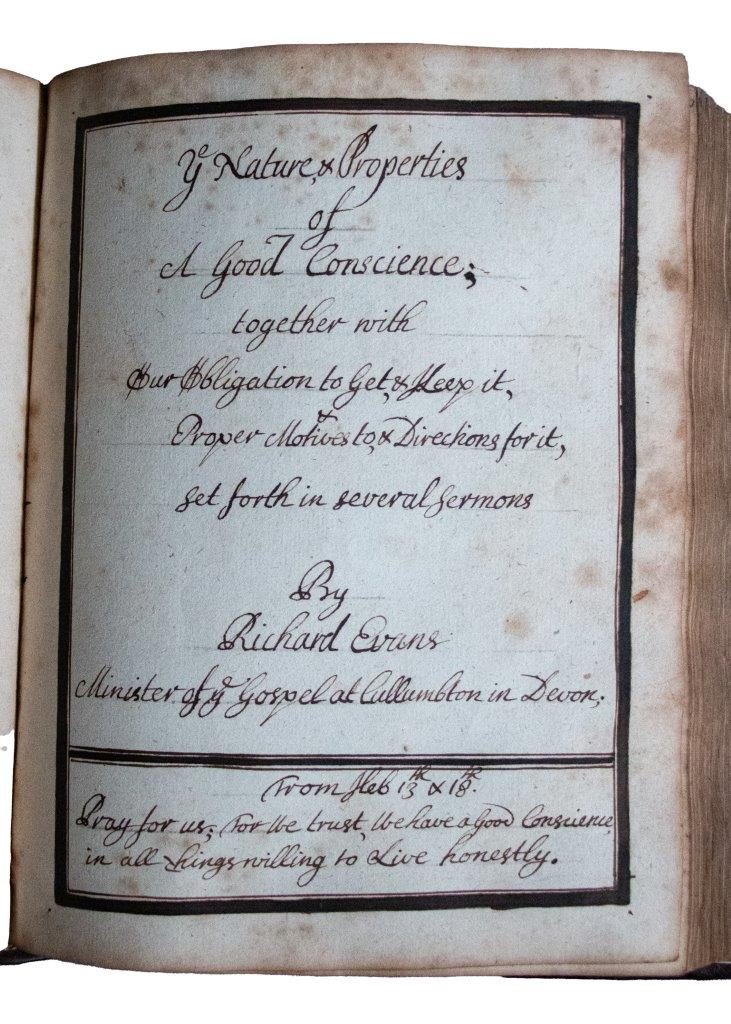
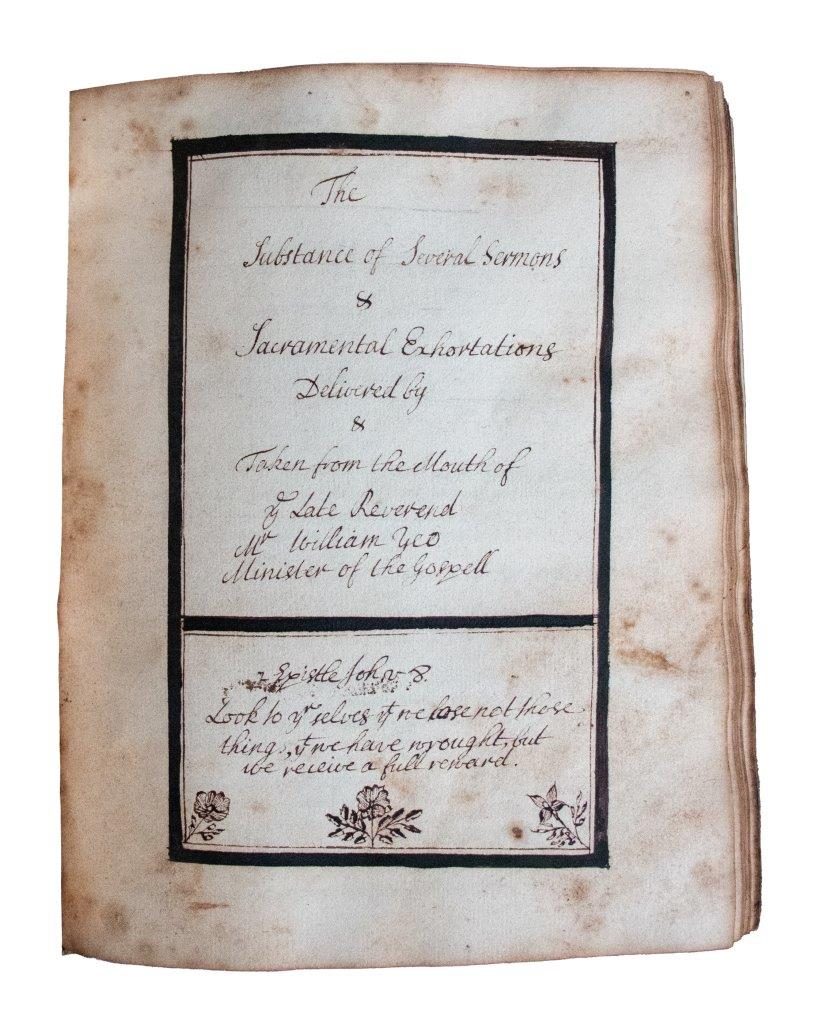
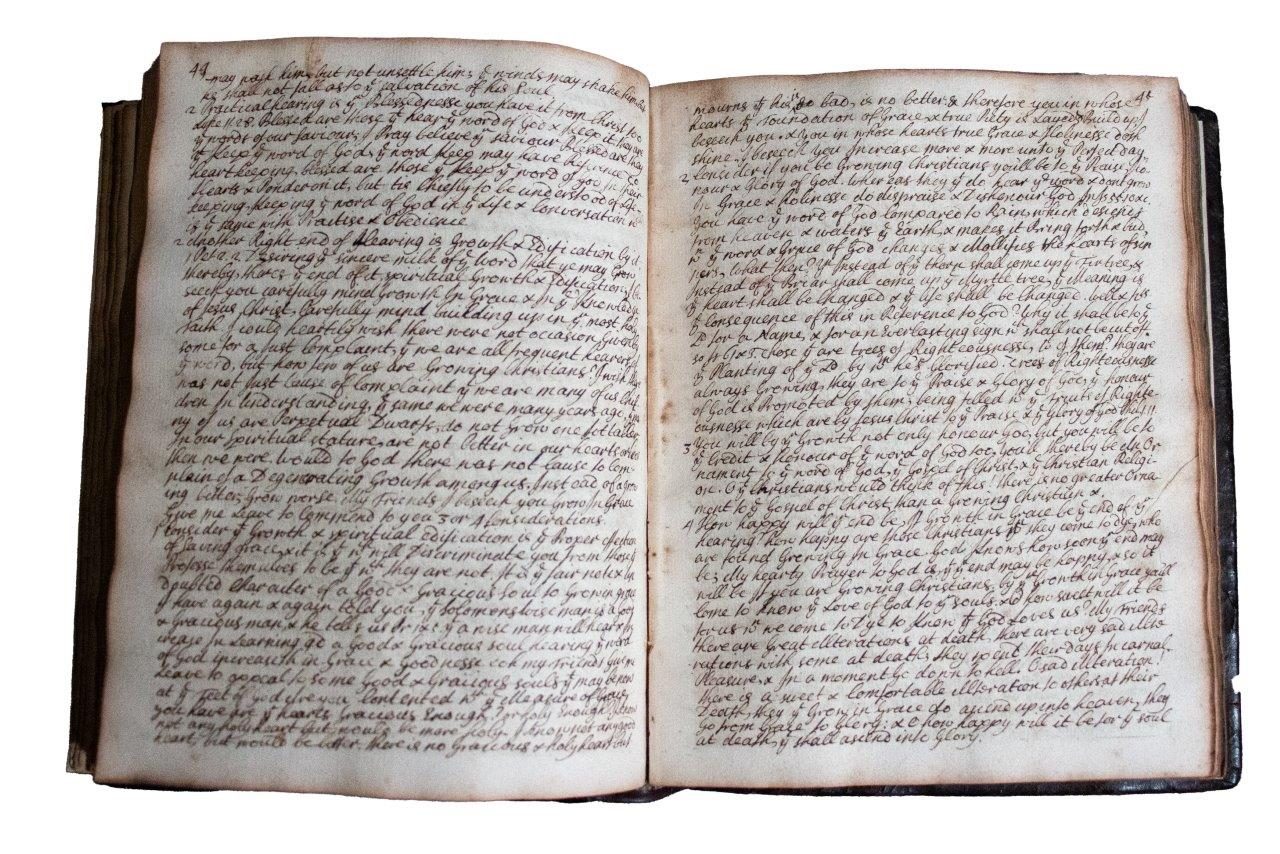
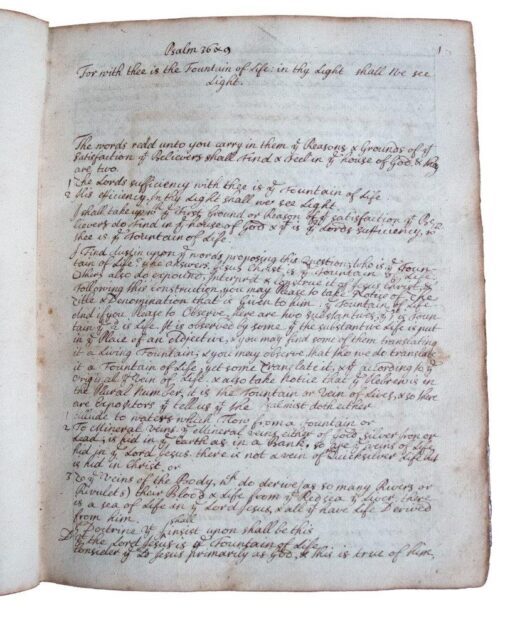
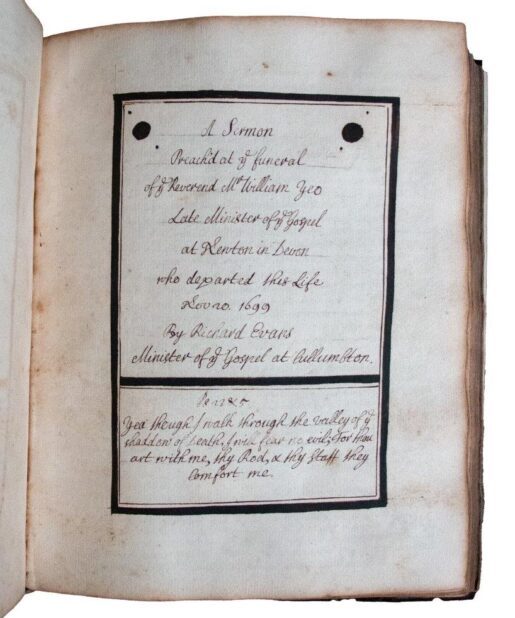
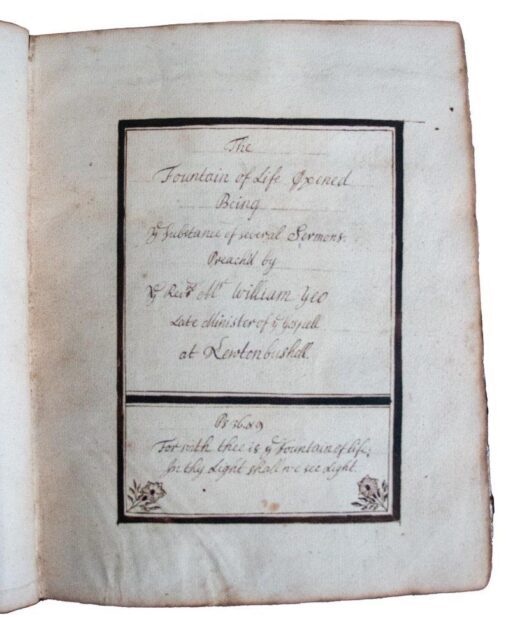
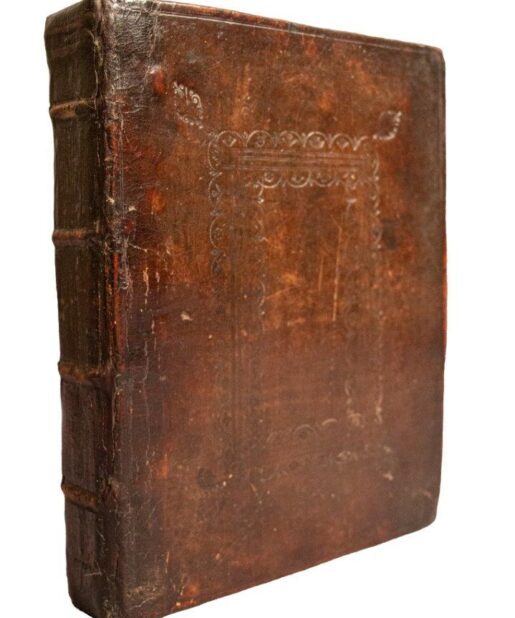
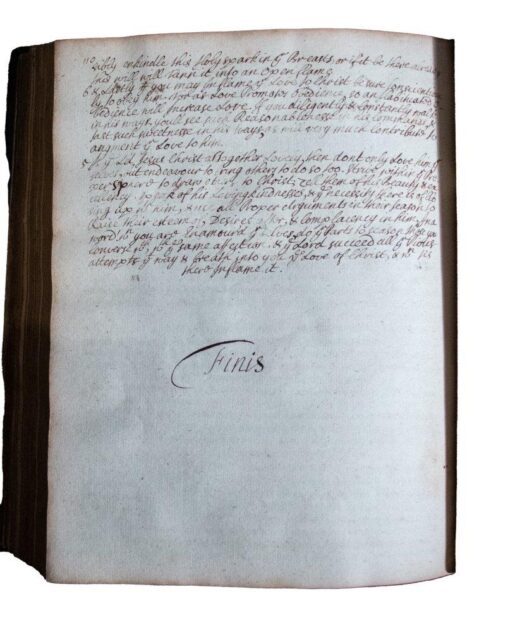
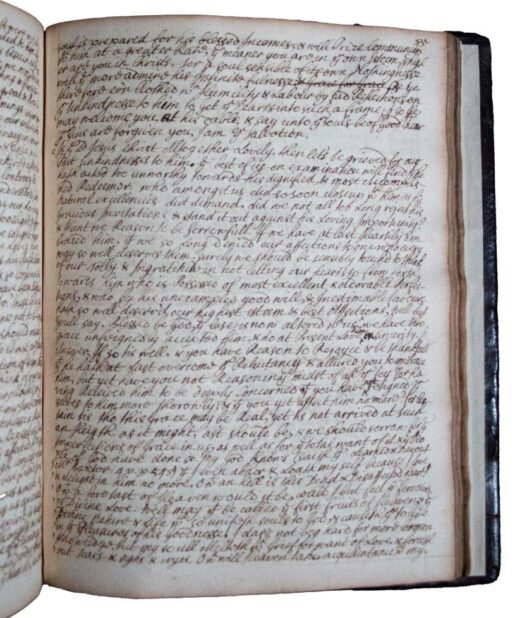
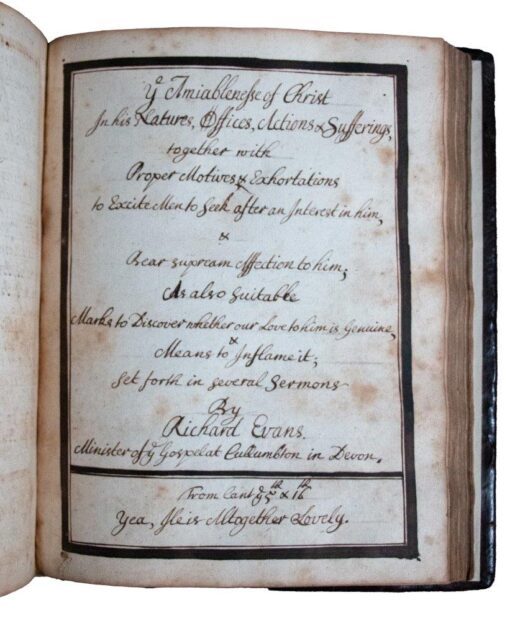
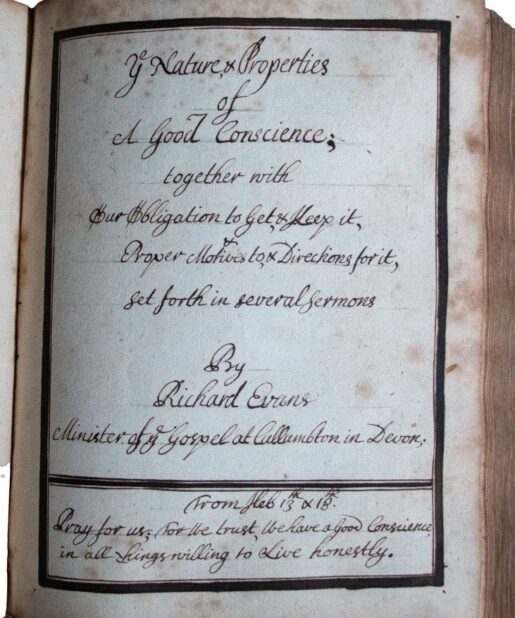
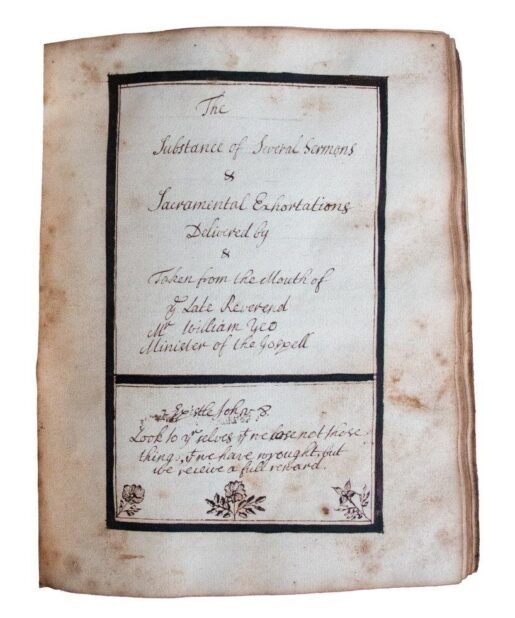
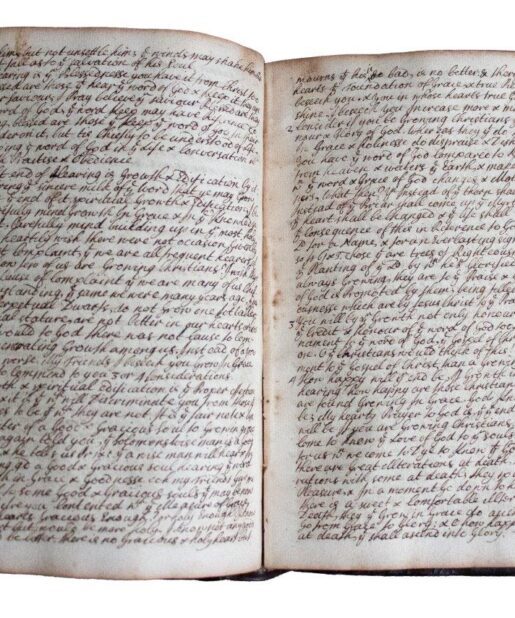
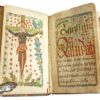
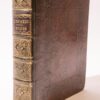
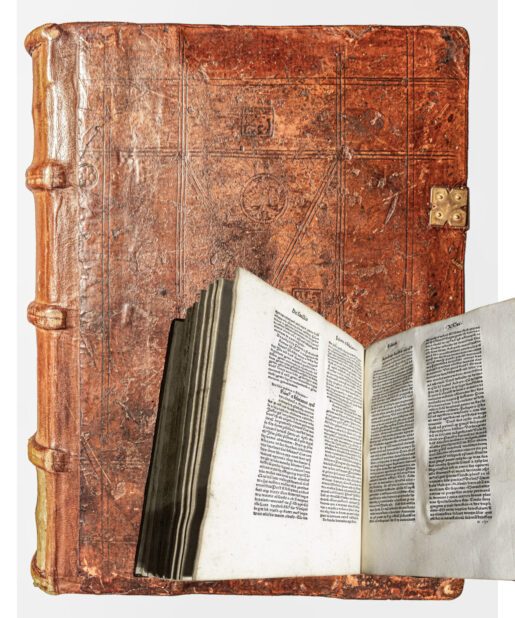
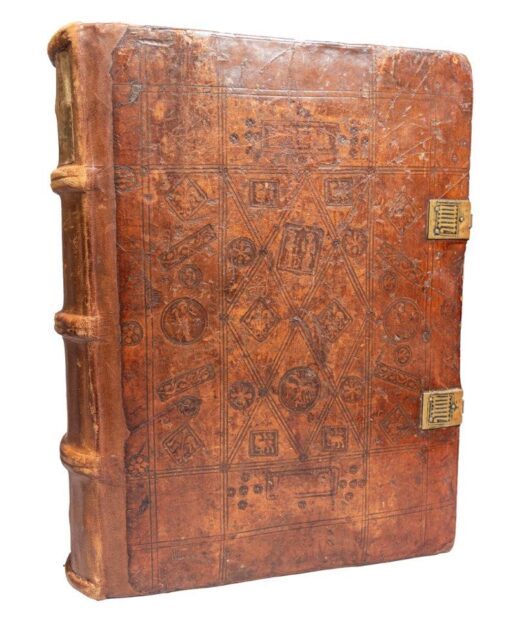
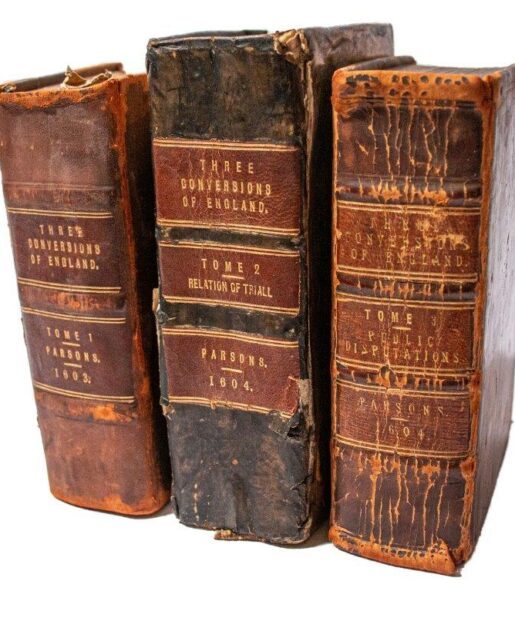
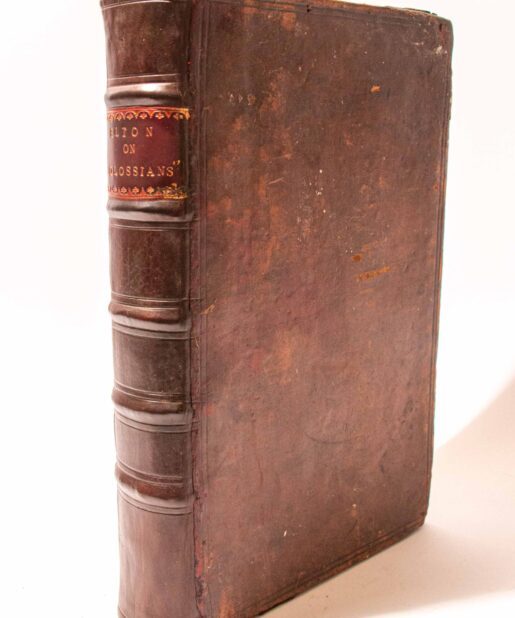
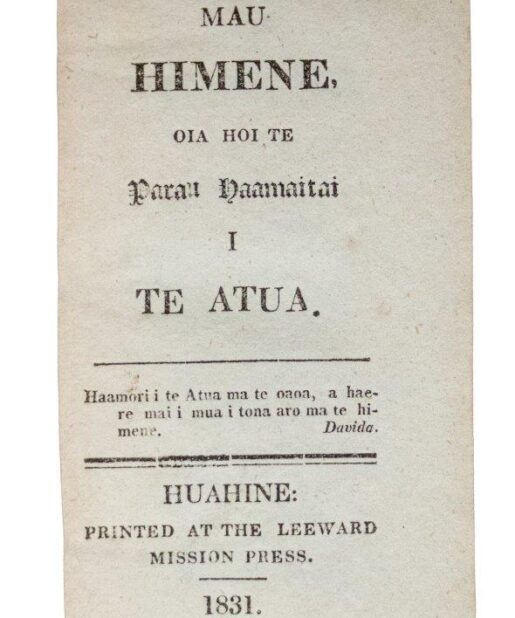
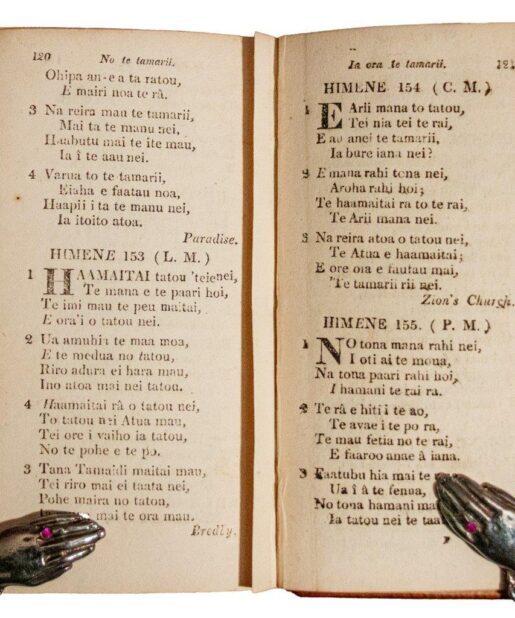
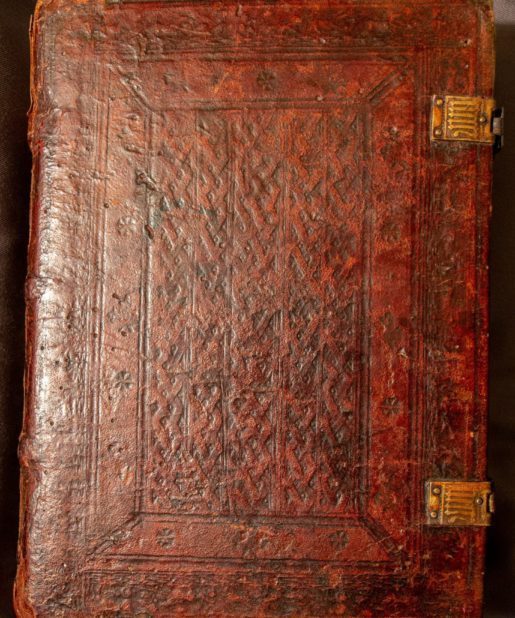
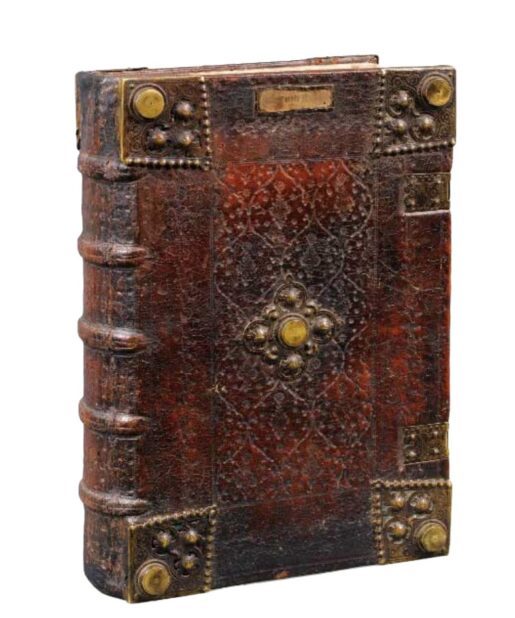
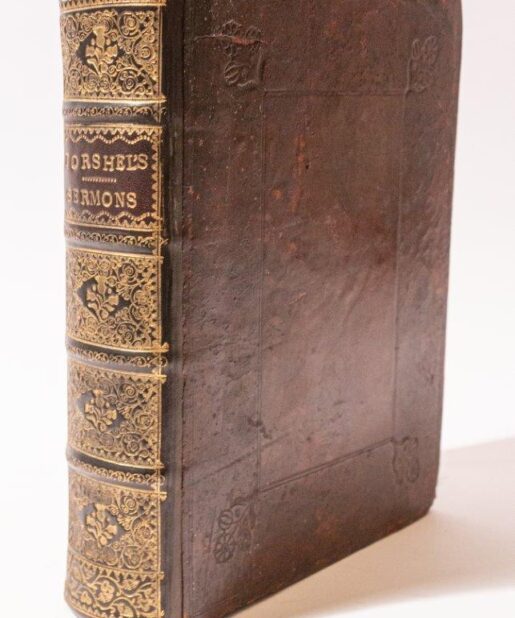
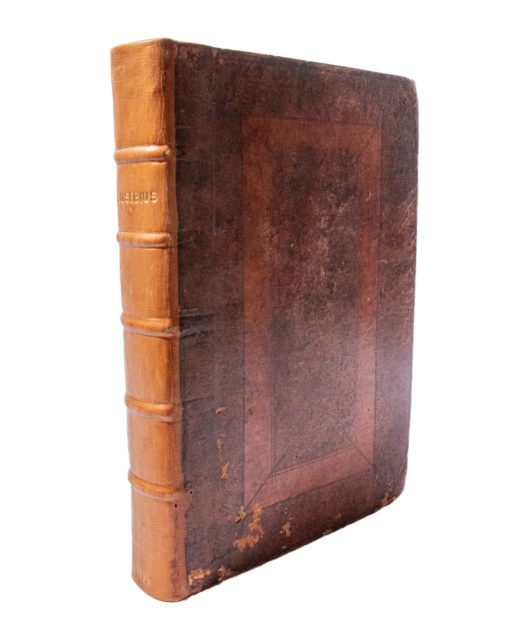
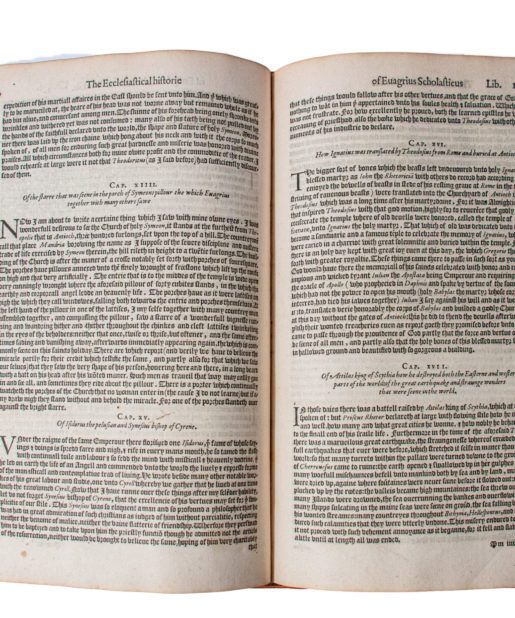
Reviews
There are no reviews yet.